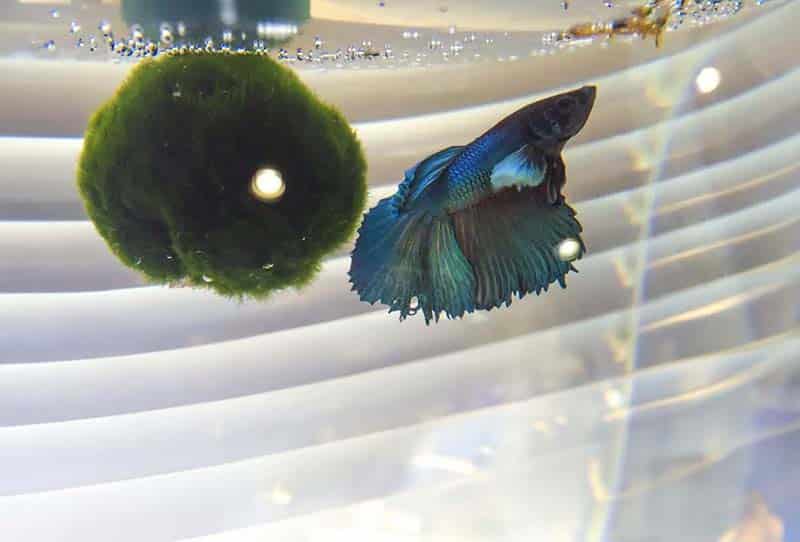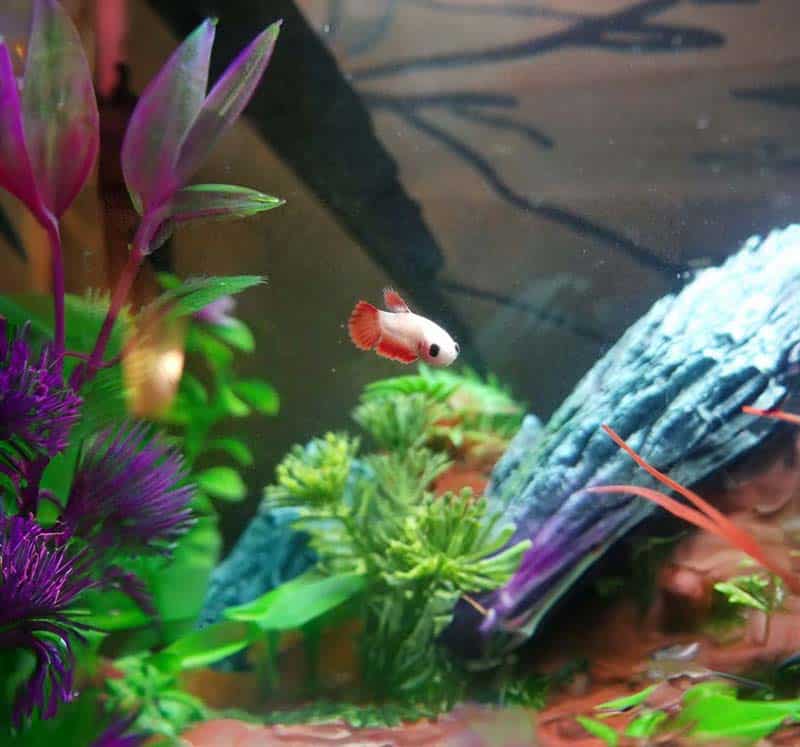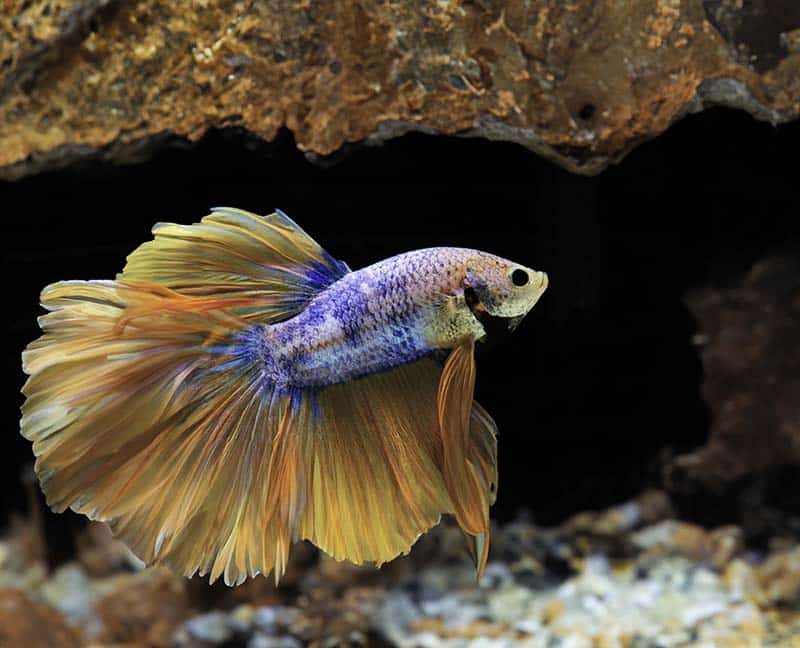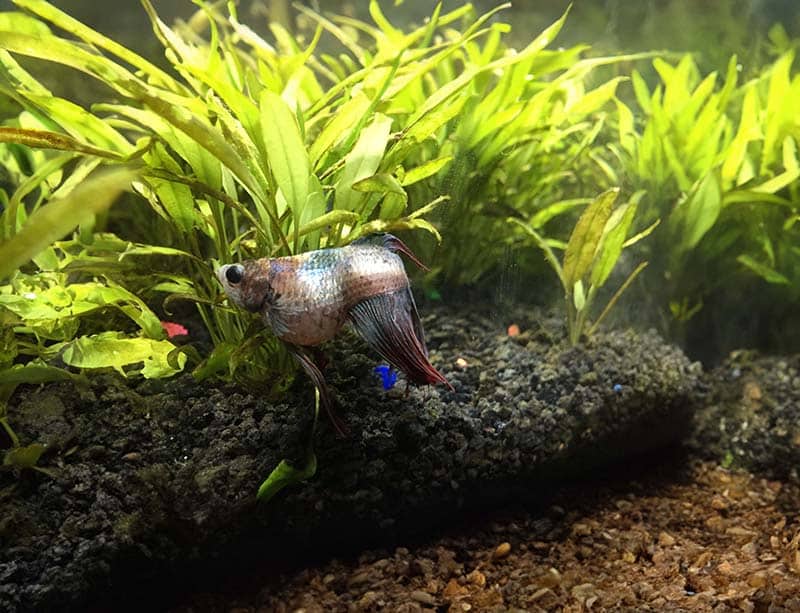Is your betta fish spitting out food, leaving you puzzled and concerned about their health and well-being? It can be concerning when your betta, who typically has a healthy appetite, starts spitting out their food. However, this behavior is not always indicative of a problem.
In this post, National Park Aquarium unravel the reasons behind betta spitting out food and explore the essential insights to address this common issue.
It Is Normal Behavior For Betta Fish To Spit Out Food?
Betta fish, like many other fish species, have a unique way of dealing with their food. It’s completely normal that betta spits out food, either to break down or soften the food.
When betta fish eat, especially pellet foods, they may appear to spit them out. This is because the pellets are often too big for them to swallow in one go. Betta fish have teeth located at the back of their throats, and they use these to grind down the food, making it easier to consume. So, it might seem like they’re spitting out their food, but they’re actually breaking it down for easier digestion.
Bettas have very small mouths, so they can only properly swallow micro pellets or small live foods. If you provide them with appropriately sized food, they’ll enjoy their meals and stay healthy.

Why Does My Betta Fish Spit Out His Food?
If your betta taking a bite only to spit it right back out, chances are, you’re dealing with a sizing issue. Betta fish are endowed with petite stomachs, roughly the size of their eyeballs. If you’re serving up commercially prepared pellets, you might be handing them a mouthful they can’t handle!
1. The Betta Is a Baby
Young bettas, or ‘juvies,’ as they’re affectionately known, have different dining preferences. They’re used to munching on live foods like mosquito larvae and grindal worms. If you toss in pellets, they’ll likely spit them out, simply because they don’t recognize them as food. The key? Hold off on the commercial fare until your juvenile betta graduates to at least five months old.

2. Betta Do Not Like The Texture Of The Food
So, you’ve found out that your betta loves live food like brine shrimp and blood worms, right? Most picky bettas can’t say no to these tasty bites. But before you give them live food all the time, there’s something you should know. Feeding only live food can lead to health problems for your betta, like becoming overweight or bloated.
Here’s a simple fix: try mixing in some flakes or pellets with the live food. Just make sure they’re small enough for your betta to eat easily. Doing this helps your betta get used to other kinds of food. That way, you can eventually switch to a diet that’s not just live food, without upsetting your betta.

3. Bettas Get Parasites
If your betta fish spits out food while losing weight and acting tired, it’s time to pay attention. These signs often point to internal parasites, which are not just annoying but can seriously harm your betta’s health over time. In fact, parasites can make your betta feel so lousy that it stops eating altogether.
So if your betta fish keeps spitting out food, sacting sluggish, and dropping weight, chances are you’re dealing with parasites. Keep an eye out for these symptoms to keep your betta’s fins fluttering and its smiles coming, all while staying in tip-top shape.
4. Digestive Problems

Digestive issues, like constipation, could be the culprit. This common issue often happens because of a diet that’s too rich in protein. But that’s not all; bettas are also prone to overeating. So even if they seem eager to gobble up every last morsel, overdoing it can lead to trouble when it comes time for your fish to, well, do its business.
In simple terms, when your betta overeats or eats too much protein, it can get constipated, leaving no room in its tiny stomach for more food. And that’s when you might see your betta suddenly spitting out food So keep an eye on how much and what you’re feeding to make sure your betta stays as happy as its bright, fluttering fins.
5. The Betta Is Being Picky
You’ve seen adult bettas chomp down on their food with a gusto that makes you wonder how they could ever be finicky. But oh, they can be! If you’ve tried everything and your betta still spits out pellets, flakes, or even the occasional pea, it’s time to consider that you may have a little gourmet on your fins.
Some betta parents report their fish turning their noses up at an entire smorgasbord of options. If this sounds like your betta, reverting to the basics—live food—might be your best course of action.
Conclusion
In conclusion, understanding the reasons of your betta fish spitting out food is vital to their health and happiness. Whether it’s due to the food’s size, texture preferences, potential parasites, digestive woes, or simply being a picky eater, this post we has shed light on the various factors at play.
Learn more:
- How often do you feed a betta fish (how many)?
- Overfed betta fish (all you need to know!)




